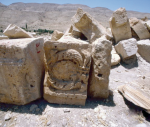You are here
Differentiation or integration
Sep 24,2017 - Last updated at Sep 24,2017
Years ago, when I was a student in Paris, I committed a faux pas in a conversation with a colleague from Bilbao, by referring to her as Spanish.
She immediately retorted sharply: “I am not Spanish, I am Basque.”
From then on, I avoided embarrassment with my Catalan colleagues by discussing with them the delicacies of Catalan cuisine instead of national identity.
Feelings can run high over questions of independence and nationhood because historically, every nation or community has suffered its share of injustice. However, when voters cast their votes over continued membership of a nation of community of nations, they largely do so over economic considerations.
A Breton nationalist once explained to me her view on Brittany’s independence from France. She said that despite the injustice Bretons suffered historically, they were better off as part of a great nation than as a small country with a cabbage and pork economy.
However, being part of the European Union can now enable small nations to enjoy both independence and membership in a large and prosperous community.
Voters still make errors of judgment.
As Churchill observed, the best argument against democracy is to talk to the average voter for five minutes.
This was obvious in the Brexit referendum last year, when millions of British voters, after learning the result of their vote, turned to Google to find out what the EU is.
One voter reportedly asked: “I didn’t know this is what I voted for. Can I do it again?”
To its credit, Britain respected the decision of the voters, as it respected the vote earlier on Scottish independence. Scotland voted against independence, but the result was by no means a foregone conclusion.
This was not the last word on the independence of Scotland, or other parts of Europe and the world.
Right now, questions are debated regarding referendums on the independence of Catalonia and Iraqi Kurdistan.
Catalonia is one of the wealthiest regions of Spain, accounting for 19 per cent of Spain’s GDP. Many Catalans feel that they are giving to Spain more than they are receiving, particularly as the Spanish economy persists in recession.
This does not mean that most Catalans want independence. Polls, which can be grossly misleading, show that a small majority would oppose independence if a referendum took place; but the margin is narrow and the vote may easily go either way.
Unlike Britain, the Spanish government opposes holding a referendum on Catalan independence. Prime Minister Mariano Rajoy promised to use all legal means at the government’s disposal to prevent it.
But independence or differentiation is sought when integration is seen to have failed. So how can a country continue to rule people who want independence without compromising its democracy?
Still, the issue is being fought out in the courts through legal means. This is so different from the question of Kurdish independence, where neighbouring countries warn the Kurds that they “would pay dearly” and predict that much blood would flow unless Kurdish leaders abandon the idea.















